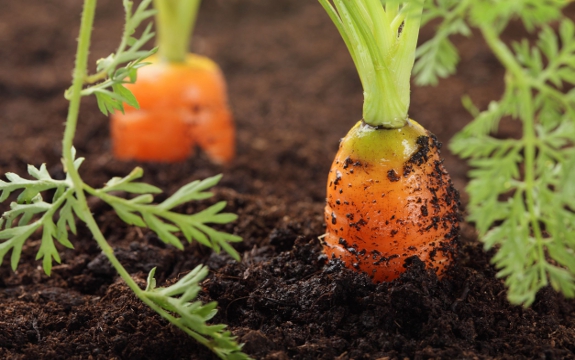
Government Threatens with Jail Time for Growing Produce in Front-Yard Garden
Elizabeth Renter Natural Society
You own your home and the lot that it sits on. So, if you want to plant tomatoes instead of bushes, you should be entitled to that, right? While this may seem like a common sense line of reasoning, many cities and towns across our nation think otherwise. They don’t want their citizens using a front-yard garden to grow food – they want perfectly green and manicured lawns.

Using a Front-Yard Garden to Grow Veges? You May Not be Allowed
It seems like every month a few more stories hit the social media grapevines, where home owners are being punished for growing food. Some of these front-yard gardeners have created landscapes that rival those created by high-paid landscaping companies. The difference—all of this greenery is edible.
Whether it’s the HOA rules or a city ordinance, some front-yard gardeners are being forced to pull up their plants and scrap their edible landscape. Why? If for nothing more than to have a seamless line of green yards stretching through the neighborhood.
When we can’t trust what we find at the grocery store, and farmer’s markets are limited and not always within driving distance, growing our own food doesn’t just make sense, it makes perfect sense.
And once you’ve begun growing your own, you will likely begin to wonder why Americans ever moved away from self-sustaining gardens.
Why can’t many of us grow food in the front-yard garden? Many townships say that the ‘issue’ revolves around yard space, where a vegetable garden may only be allowed to take up to 20-30% of a yard area. It may sound crazy that a city government would spend (waste) resources to target gardeners, but it actually happens more often than you would think.
As reported by Dr. Mercola:
- In 2011, Julie Bass of Oak Park, Michigan was charged with a misdemeanor and threatened with jail time for planting a vegetable garden in her front yard.
- In British Columbia, Dirk Becker was threatened with six months in jail for converting an acre of his 2.5-acre lot into an organic farm. What’s even more unsettling about the charges in this case is that the lot was literally stripped bare down to a gravel pit before this. The owner spent over a decade healing the land and converting it into a self-contained ecosystem that is now home to thriving vegetable crops, fruit trees, bees, butterflies, birds, frogs, dragonflies and more. But because the area is zoned a “residential” lot, the local government is calling on him to “cease all agricultural activity” or pay the consequences.
- Earlier this year, city inspectors bulldozed more than 100 types of plants, including garlic chives, strawberry and apple mint, being grown by Denise Morrison in Tulsa, Oklahoma. The inspectors said her plants were too tall, but city code allows for plants over 12 inches if they’re meant for human consumption, which hers were. Morrison is now suing the city for violating her civil rights.
- Steve Miller was fined $5,200 for growing vegetables in his Clarkston, Georgia backyard, which he not only consumed but also sold at farmers markets and shared with friends.
Where to get Started?
Whether you are looking to grow vegetables in a front-yard garden, out back, or even on your apartment balcony, there are simple ways to get started. Choose the right place, where your plants will get plenty of sunshine and won’t be trampled by the dog or neighborhood kids.
You can dig down, beneath the grass roots to the soil or you can create a raised bed. Planting an amazing kitchen garden entirely in containers, without breaking soil at all, is also an option.
If you are a beginner, choose plants that are easy to grow like tomatoes, hearty greens, and squash. Purchase starter plants for things like peppers, squash and tomatoes, to get a head start and to eliminate some of the gamble when planting seeds.
A little research into your gardening options goes a long way. And if you’re looking to grow your own vegetables, strongly consider going all organic. Organic gardening is a great way to avoid the threat of genetically modified foods, pesticides, and toxic additives. While the garden can be as large or small as you’d like, the benefit of knowing exactly how your food was prepared and therefore what is in it is worth the time and effort that goes into it. Want to know how to do organic gardening? Check out our organic gardening 101 post.
And, if you live in a town where there might be a battle over your new mini-farm, be prepared. Know your rights, keep your garden looking nice, and be ready to stand your ground.
